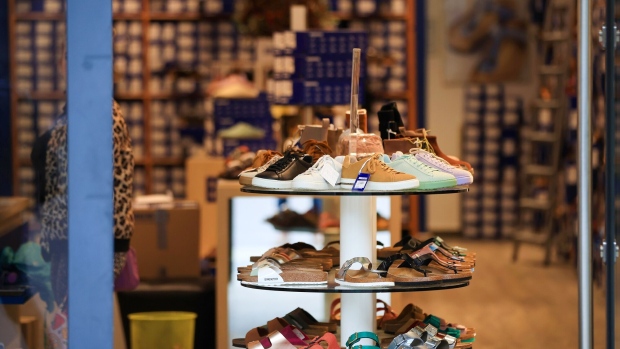Feb 29, 2024
Birkenstock Tops Estimates as Demand Stays Hot For Sandals
, Bloomberg News

(Bloomberg) -- Birkenstock Holding Plc shares fell after traders took a dim view of higher than expected costs of expanding capacity at footwear factories, shrugging off the company’s strong sales results.
The stock dropped as much as 13%, erasing most of the gains since the German company’s initial public offering in October. It was down 5.4% as of 10:38 a.m. in New York trading after a restriction was put on betting against the shares.
Since the October IPO, Chief Executive Officer Oliver Reichert has tried to convince investors that the company can maintain its decade-long hot streak by staying fashionable, expanding its production capacity in Germany and Portugal and targeting previously untapped countries like China and India. While earnings in the quarter ending in December beat analysts’ estimates, key measures of profitability declined.
Birkenstock’s gross margin fell 70 basis points to 61% in the quarter that ended in December, while its adjusted Ebitda margin dropped 220 basis points to 26.9%, the sandal maker said in a statement Thursday. The results were based partly on currency swings and costs associated with ramping up production at shoe factories in Germany and Portugal. While the investments are weighing on profit now, the company sees them as long-term growth drivers.
To some extent, investors are cautious on casual footwear brands these days, with sneaker brands including Nike Inc. and Puma SE having raised doubts about consumer spending around the world. Birkenstock has argued that there’s an opportunity to win over new fans. The company has come to embrace the fashion world over the last decade or so, launching collaborations with luxury names such as Dior, Manolo Blahnik and Rick Owens.
For the first time, the company, which is trying to appeal to more customers and in all seasons of the year, recorded more revenue from closed-toed shoes than its iconic sandals in the recent quarter. Those products, including the Bend sneaker, the Highwood boots and more clogs with shearling, command higher prices, helping Birkenstock boost profits and appeal to a wider array of customers.
The company affirmed its 2024 guidance and mid-term goals of booking a gross profit margin of more than 60% and adjusted Ebitda margin percentage in the low 30s. It posted adjusted earnings of €81 million ($88 million) before interest, taxes, depreciation and amortization in the quarter, exceeding the €75.5 million average estimate. Sales reached €303 million, also ahead of estimates, with double-digit growth rates in the Americas, Europe and Asia.
(Updates with shares beginning in first paragraph.)
©2024 Bloomberg L.P.


